In this week’s blog post, Dr. Sunghee Lee writes about how she manages to motivate and maintain a laboratory full of fourteen excited undergraduate researchers!
Imagine a scenario where you receive a call from a college security officer on a Saturday morning. Imagine that the reason you were called is to verify the request of students who insisted that they get into the lab so that they can do research on the weekend. Imagine further, a snow day when all classes are cancelled and your students still want to get into the lab. Imagine that students sometimes even hide from the security officers when the building is closed, so that students can stay longer in the lab without being asked to leave.
Well, this is not imaginary, as these are all true stories in my research laboratory at Iona College, New Rochelle, New York. My college is a PUI — a purely undergraduate institution, as far as Chemistry is concerned. Yet, these are my students. How did I get here, and what can be learned from it?
The nature of my research in experimental colloidal soft matter can be quite labor-intensive at times, and therefore students can be given different portions of a project, from sample preparation all the way to data analysis.
My research laboratory, which is focused on soft interfacial materials research, is called “Project Symphony”. This naming came from the idea that all of our group members work together in harmony to achieve what would appear to be dauntingly difficult if done individually. As I am writing this blog, we have 14 members in Project Symphony, who range in status from freshmen to senior students.When I started my academic career in 2004 at Iona, having a great love for teaching and engagement with students, I didn’t specifically imagine running a laboratory of such a large group of undergraduate students.
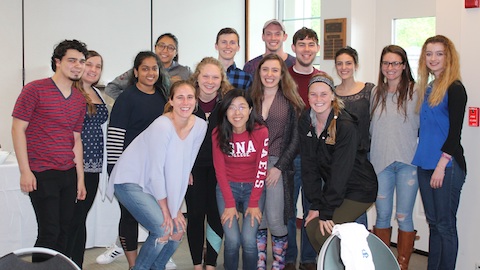
Nor did I have any prescription as to how I would build such a thing. But as soon as I started working with undergraduates on my nascent research project, I quickly learned what is obvious now: when you have a laboratory solely composed of undergraduate students, one cannot expect them to “own” an independent research project all at once. But, with time, patience, and planning, even a group as large as a dozen can be managed well and fruitfully.
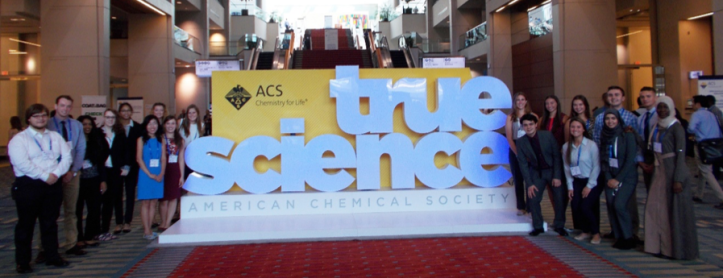
In order to make beautiful choral music, vocalists need to step forward and audition for membership. In my case, new members are self-selected, and they pass the audition by showing their zeal about joining my group. From the first day of Introductory Chemistry class for freshmen, I tell my students about the existence of my lab, what goes on there, and they are all invited to visit. Not everyone stops by, of course, but those that do are given a personal tour. These curious ones are shown all the ways in which the principles and fundamentals discussed in class are put into practice by people not much different from them: upperclassmen group members. This begins to encourage freshmen to visualize science as not something that is just done by strange men in lab coats on TV, but young minds who are their peers. It isn’t long before a few want to sign up with me.
…when you have a laboratory solely composed of undergraduate students, one cannot expect them to “own” an independent research project all at once. But, with time, patience, and planning, even a group as large as a dozen can be managed well and fruitfully
Selection goes both ways, too. I would have to assess the talent of the students, and their ability to potentially enjoy the experience of doing research is every bit as significant as other kinds of ability. Do they seem to like working in a lab? Next, I need to find a role that best suits the fledging recruit. For example, for those who might have a mathematical/software talent or interest, they can take a role in developing tools to ease data analysis. You can help a team do chemistry without doing “chemistry”!

The crux for success of
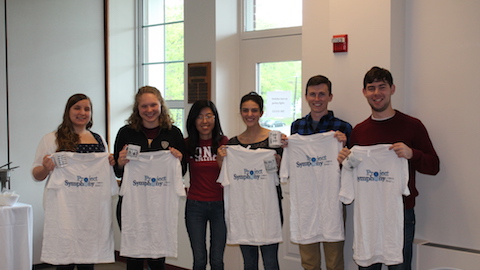
Project Symphony is in the summer experience. The five-to-ten weeks that I spend in the lab with my students each summer is the time that we bond, and is also the time that students get bit by the research “bug”. In summertime, I can have up to ten students at a time, all working in different portions of my experimental projects. The nature of my research in experimental colloidal soft matter can be quite labor-intensive at times, and therefore students can be given different portions of a project, from sample preparation all the way to data analysis. It’s quite the concerto.
A unique advantage of a group this size is the ability to pair student: a junior or senior (who has had the benefit of a prior summer experience), with a rising sophomore. Sometimes, this pairing happens organically and doesn’t have to be prescribed by me. They like to work as a team, it seems. This pairing usually continues for the portion of time the students can devote to research during the following academic year, too. I have observed pairs occasionally arranging their academic calendar so that they may have a mutual afternoon free from classes, for lab research together!
The expectations I set for my students are very high. They are told to be prepared and be focused (while having fun, too). Careful measurements and observations are critical for the success of colloidal/soft matter research, which is dependent upon very weak forces that can be upset by something as a ringing cell phone (disrupting electrophysiological recordings) or a heavy footstep (which can dislodge a micromanipulated vesicle). This gives them a seriousness of purpose that they can carry as a point of pride.
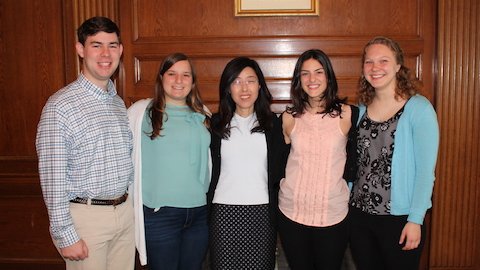
Those who spend a summer experience with me get bit by the bug, even though it might not bite until the whole summer is over. Since I’m there with them all summer, I make it fun! We eat picnic lunches together on the lawn. We bond over items of mutual concern, such as career and academic planning. At the end of the summer, I’ve been quite fortunate so far as to take almost all of the dozen to the fall National ACS meeting.
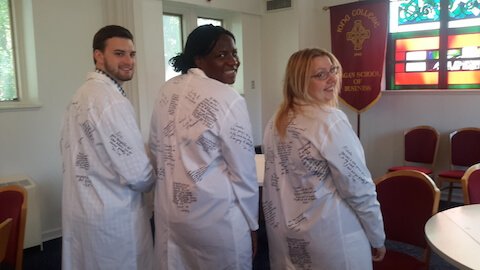
Still, I know that during the academic year, their commitment to classes takes top priority. I make sure to be understanding and accommodate for that. If students are involved in intense research over a prior summer, the students want to have a big time commitment to research during the following academic year: I actually need to scale back their enthusiasms! This is the part that calls for me to manage but don’t overmanage: it’s only during the summer that we “eat, sleep, chemistry”; during the academic year, study comes first.
…it’s only during the summer that we “eat, sleep, chemistry”…during the academic year, study comes first.
The reader may be wondering how, in view of my intense involvement with the students, do I maintain my career in view of REU commitments? Whether by happenstance or design, throughout my ten year career at Iona doing undergraduate research, the development of my career has been part and parcel (one and the same) as my REU commitments. The research career does not seem to exist but for the valuable contributions in intellect and labor that are provided by the students.
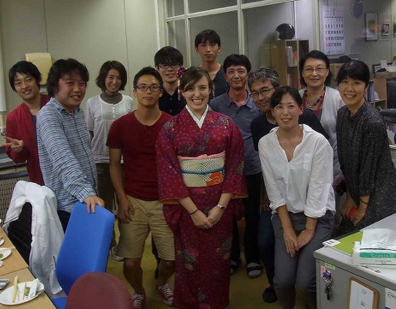
I’ll end with a brief mention of one of my students who was able to partake in an international experience with a collaborator of mine in Japan. This student had already worked a couple of summers with me and so I thought he could not be more committed. Still, after a month in Tokyo in a graduate-level lab, witnessing their energy and competitiveness, he remarked that “I can’t go back to 9 to 5!”, meaning, that the level of enthusiasm he developed by being a member of my group has “primed” him for even greater successes. I’m proud of my students and the music we make together. I may be conductor of Project Symphony, with all the passion that implies, but they are my ensemble.
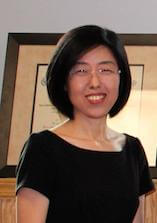 ~ Dr. Sunghee Lee is the Board of Trustees Endowed Professor and Chair of Chemistry at Iona College in New Rochelle, NY. Her research focuses on the interfacial chemistry of aqueous microdroplets mediated by self-assembled structures at the liquid-liquid interface. You can find out more at: http://www.dropletbilayer.com/
~ Dr. Sunghee Lee is the Board of Trustees Endowed Professor and Chair of Chemistry at Iona College in New Rochelle, NY. Her research focuses on the interfacial chemistry of aqueous microdroplets mediated by self-assembled structures at the liquid-liquid interface. You can find out more at: http://www.dropletbilayer.com/


[…] I posted a blog regarding my experience leading a large undergraduate research group, where I emphasized that it is essential to manage, but not […]
LikeLike
[…] a CUR chem author a few times in the past, including one entry in which I shared my experiences of managing a large undergraduate research group. This time, I would like to focus more on the orchestration of a research project, which may help […]
LikeLike